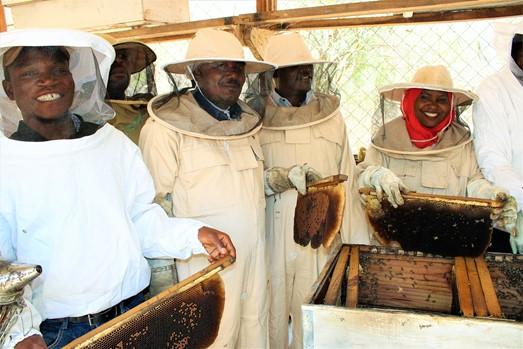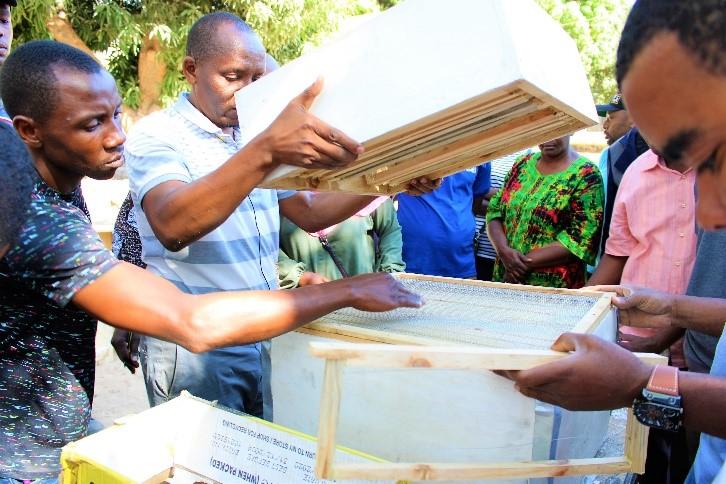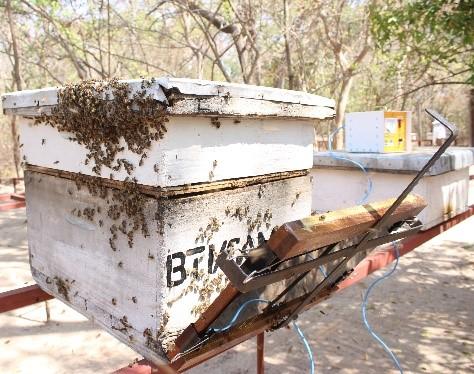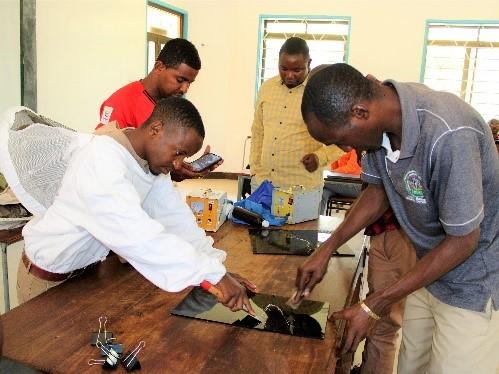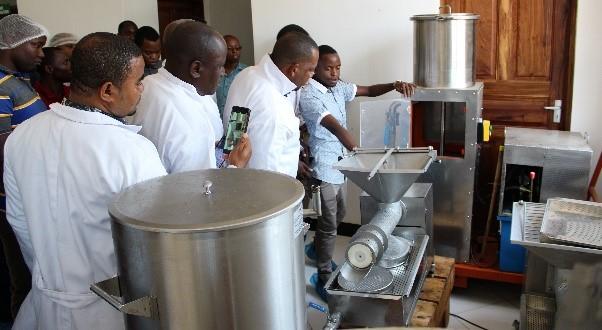ENHANCING BEEKEEPING EXTENSION SERVICES
Tanzania is the second largest honey producer in Africa and the largest African supplier to the EU, still most districts with high honey production levels lack specialized government extension officers. In September 2022, Enabel through EU funded Beekeeping
Value Chain Support (BEVAC) Programme provided intensive training to 21 beekeeping extension officers from 7 regions (Tabora, Singida, Shinyanga, Kigoma, Katavi, North Pemba, and South Pemba) to equip
them with appropriate knowledge, skills, and practices for them to support
the sector better.
The District Beekeeping Officer (Wildlife by professional) from Itigi District
Council, John Makota, appreciated the session and said, “I
did not know how modern bee hives are produced and the importance of maintaining
bee-space measurements. This training helped me to gain knowledge, skills, and
practice in the construction of top-bar hives and frame hives. I will use these skills to guide and educate my beekeepers and input suppliers on the importance of using modern hive technology”
Moh’d K. Massoud District Forest Officer from
Chake-Chake Pemba acknowledged receipt of new knowledge and skills of harvesting bee Venom. During the training he said, “I have been hearing about bee Venom from
different stakeholders, now I know exactly what bee Venom is, its uses, and how to
harvest it from bees. Now I have the competence to educate beekeepers in my
district not only to rely on honey as the main bee product like how they currently
do, rather they can explore the bee Venom market and increase their household
income.”
During honey processing practices, the District Beekeeping Officer
from Mlele District in Katavi region Mr. Vicent Jackson Kizeze explained that “Recently,
one exporter of honey from Mlele encountered
a challenge whereby their export was found with 165 mg/kg amount of Hydroxymethylfurfural (HMF) which is above-recommended amount (80mg/kg) for Tropical honey. This highly affected
the price of honey exported and as a consequence reduced income to this trader. Therefore, through this training, we need to learn more about
the use of these processing machines and the amount of heat we can apply during the processing of honey to ensure quality is maintained.”
Latest news from this project
No news
